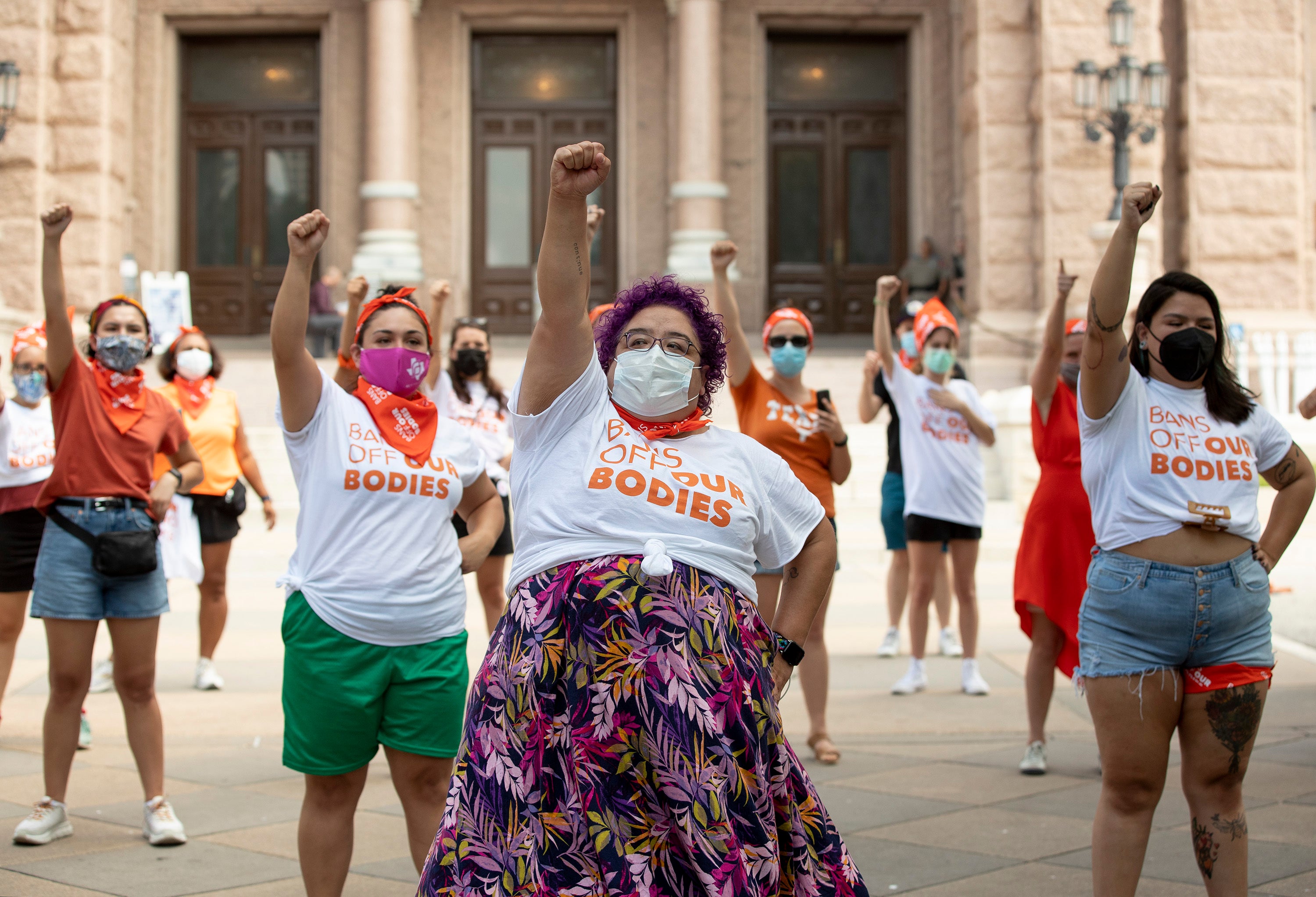Texas abortion providers ask Supreme Court to act fast
Texas abortion providers are again asking the U.S. Supreme Court to take up a new state law banning most abortions

Your support helps us to tell the story
From reproductive rights to climate change to Big Tech, The Independent is on the ground when the story is developing. Whether it's investigating the financials of Elon Musk's pro-Trump PAC or producing our latest documentary, 'The A Word', which shines a light on the American women fighting for reproductive rights, we know how important it is to parse out the facts from the messaging.
At such a critical moment in US history, we need reporters on the ground. Your donation allows us to keep sending journalists to speak to both sides of the story.
The Independent is trusted by Americans across the entire political spectrum. And unlike many other quality news outlets, we choose not to lock Americans out of our reporting and analysis with paywalls. We believe quality journalism should be available to everyone, paid for by those who can afford it.
Your support makes all the difference.Texas abortion providers again asked the U.S. Supreme Court on Thursday to take up a new state law that has banned most abortions since the beginning of September, when the deeply divided justices allowed it to take effect.
Since then, abortion providers in Texas say their worst fears have come to fruition. They describe women traveling hundreds of miles to get an abortion while out-of-state clinics grow backlogged and their own clinics rapidly confront possible closure.
This time abortion providers want the court — which allowed the law known as Senate Bill 8 to remain in place in a 5-4 ruling — to act rather than wait for its ongoing lawsuit to proceed at the 5th U.S. Circuit Court of Appeals. The conservative-leaning appeals court is not poised to act before December, the abortion providers say.
“Meanwhile, Texans are in crisis," the Center for Reproductive Rights told the Supreme Court. “As a result, Texans with means must now travel hundreds of miles each way to other States during a pandemic, just to exercise a clearly established federal right."
The Supreme Court almost always waits for lower courts to act before doing so. In letting the Texas law be enforced for now, justices previously did not rule on the constitutionality of Senate Bill 8, but rather declined to block enforcement while a challenge plays out in the courts.
The Texas law is the nation’s biggest curb to abortion rights since the court announced in its landmark 1973 Roe v. Wade decision that women have a constitutional right to abortion. It bans prohibits abortions once medical professionals can detect cardiac activity, which is usually around six weeks and before some women know they’re pregnant.
Enforcement is left up to private citizens who can file lawsuits against abortion providers, as well as others who help a woman obtain an abortion in Texas. Last weekend, a San Antonio doctor became the first to publicly say he intentionally violated the law, and was quickly sued — not by anti-abortion activists, but by two ex-lawyers hoping a judge will instead side with clinics and block the measure.
The Justice Department has also stepped in and filed its own lawsuit in Texas, which is scheduled to be heard by a federal judge in Austin on Oct. 1.
The new request by Texas abortion providers comes days after the the Supreme Court said it will hear arguments in December in Mississippi’s bid to have the landmark Roe v. Wade decision guaranteeing a woman’s right to an abortion overturned.